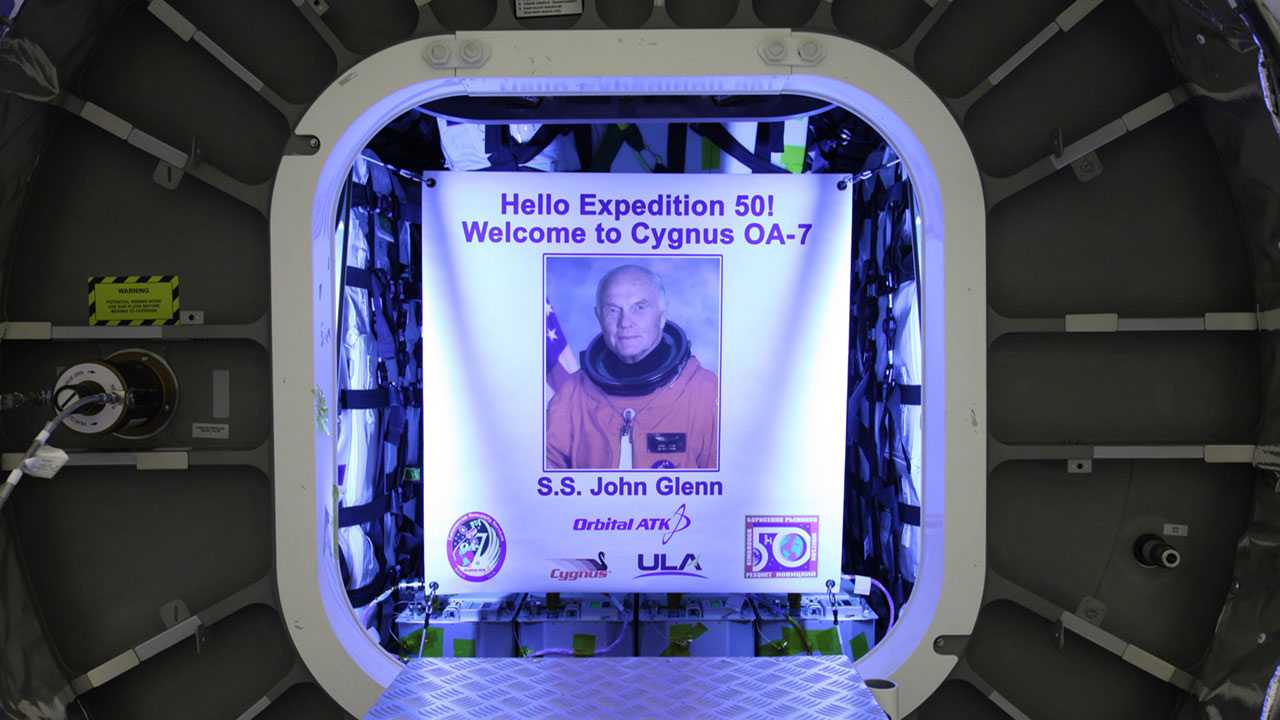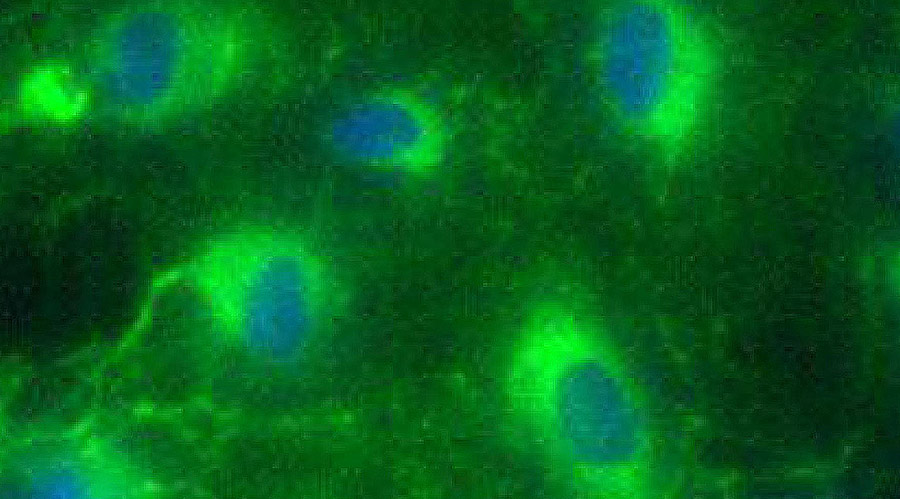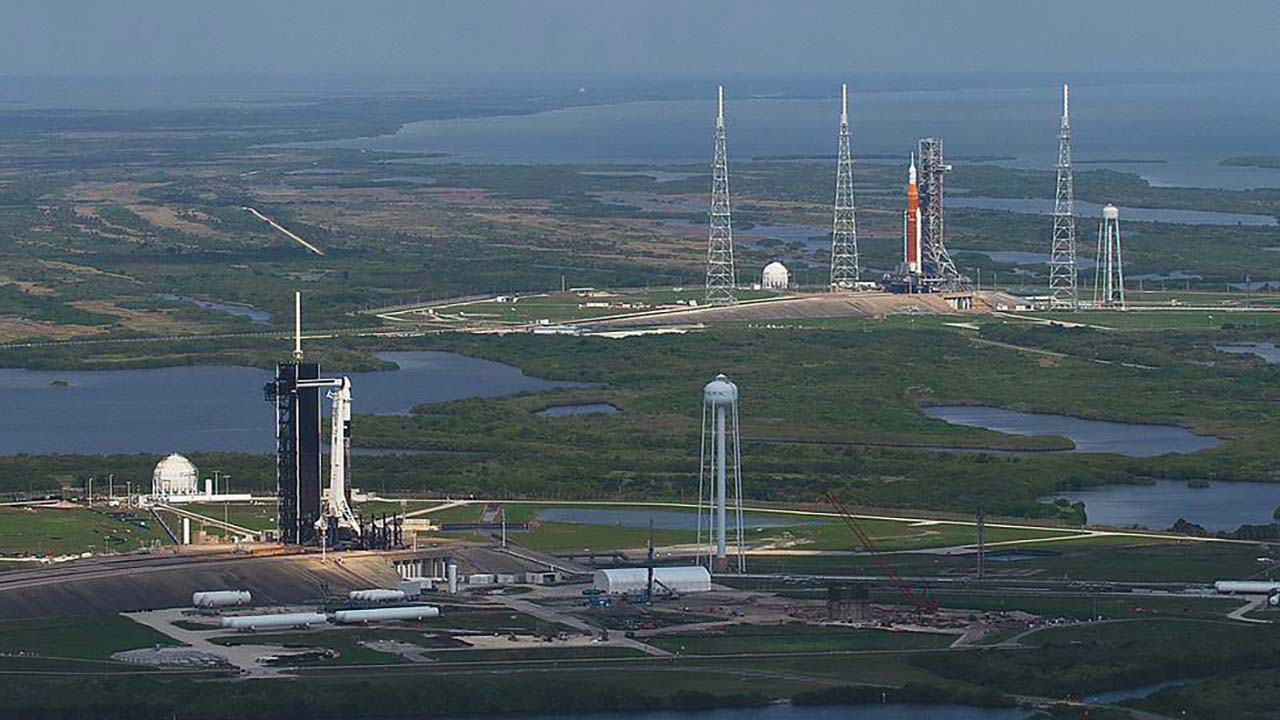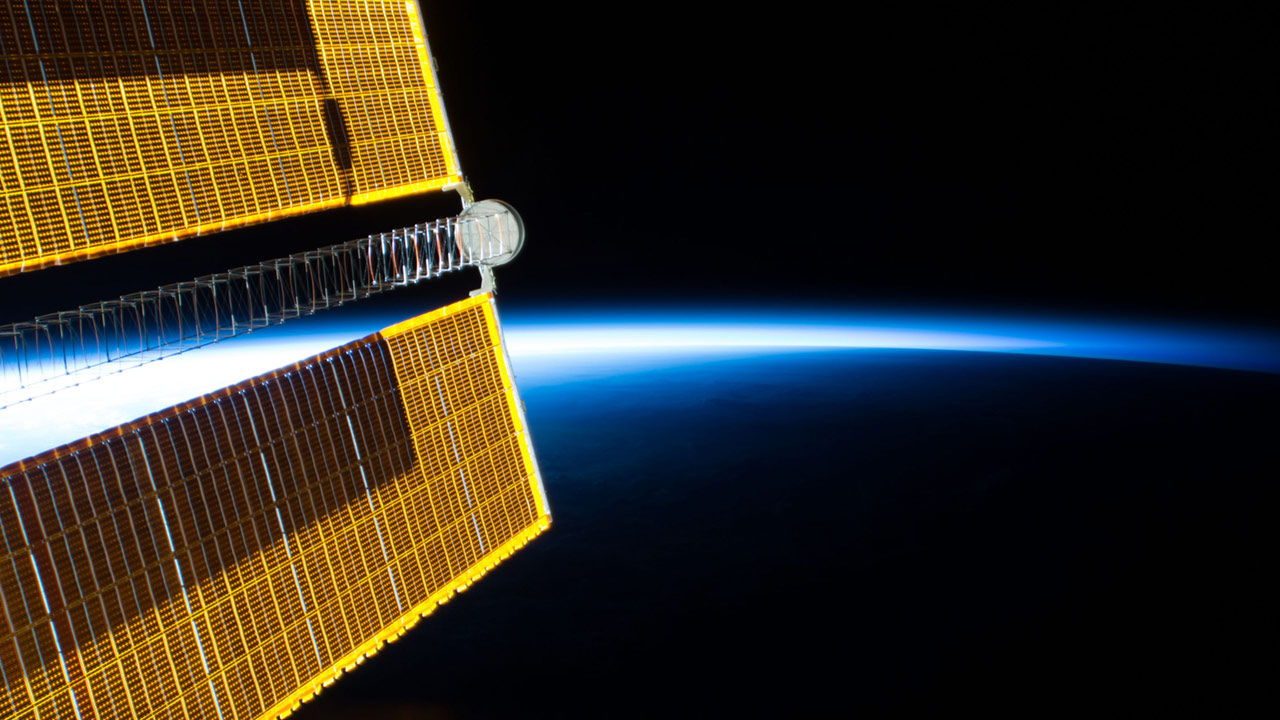On April 18th, Orbital ATK’s 7th ISS cargo resupply mission successfully launched from Cape Canaveral Air Force Station in Florida carrying more than 7,600 pounds of experiments and crew member supplies. Orbital ATK’s Cygnus capsule, renamed the S.S. John Glenn in memory of the pioneering astronaut, was stocked with dozens of ISS National Lab sponsored investigations, all seeking to utilize the unique space environment to benefit life back on Earth. Payloads included physical sciences and genetics investigations, student experiments, Earth observation projects, and radiation studies—a few of which are highlighted below.
Antibody Drug Conjugates (ADCs) in Microgravity
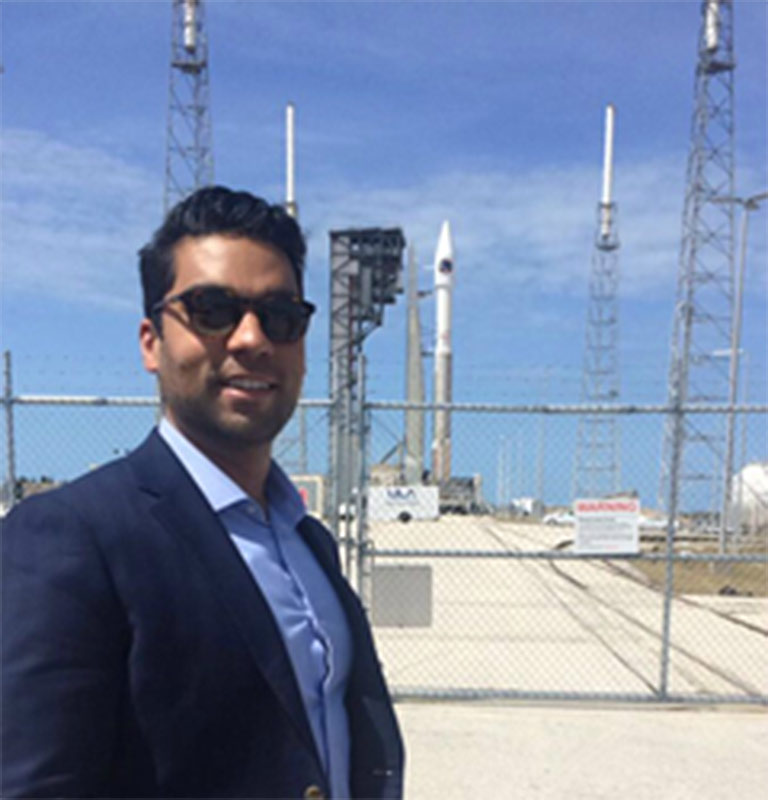
Oncolinx founder and CEO Sourav Sinha at the Orbital ATK CRS-7 launch.
Media Credit: Image courtesy of Oncolinx
Startup company Oncolinx Pharmaceuticals, LLC is using the microgravity environment of the ISS to test the efficacy and metabolism of new cancer fighting drugs in 3D cell cultures. Azonafides are drugs that inhibit tumor growth. In combination with ADCs, therapeutics that target tumors through receptors on the surface of cancer cells, cancer therapies are more effective against cancer cells and less toxic to healthy cells. Oncolinx has been given exclusive access by the National Cancer Institute to investigate and commercialize Azonafide ADCs, along with funding for related ground studies. Compared with cell cultures in a dish on Earth, cell cultures in microgravity serve as better tumor models due to specific responses to the space environment. Improved models allow researchers to better test the performance of therapeutics, which could accelerate the timeline for bringing a drug to market. This investigation originated through a joint CASIS–Boeing “Technology in Space” prize associated with the MassChallenge Accelerator program (the largest-ever startup accelerator and the first to support high-impact, early-stage entrepreneurs without taking any equity).
Crystal Growth of Cs2LiYCl6:CE Scintillators in Microgravity
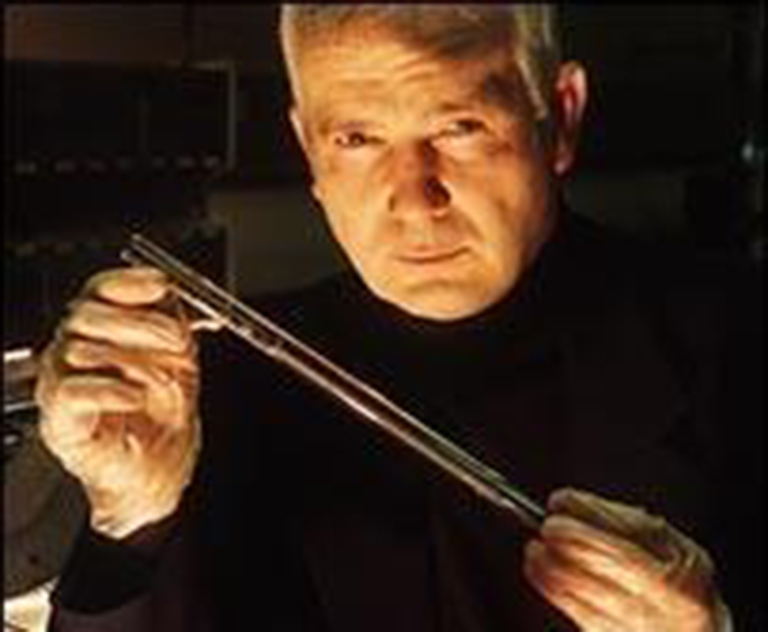
SUBSA Principal Investigator, Aleksander Ostrogorsky, Ph.D. holding a SUBSA ampoule
Media Credit: Image courtesy of NASA
Radiation Monitoring Devices, Inc. will use the ISS as a platform to conduct a series of experiments to grow scintillator crystals. Scintillators excite when exposed to certain types of radiation and can be used in detectors for safety monitoring or homeland security applications. The reduced fluid motion in microgravity could lead to the growth of scintillator crystals with higher purity and quality. This investigation leverages an updated facility onboard the ISS that acts as a furnace in microgravity, the Solidification Using a Baffle in Sealed Ampoules (SUBSA) hardware platform.
Magnetic 3D Cell Culture for Biological Research in Microgravity
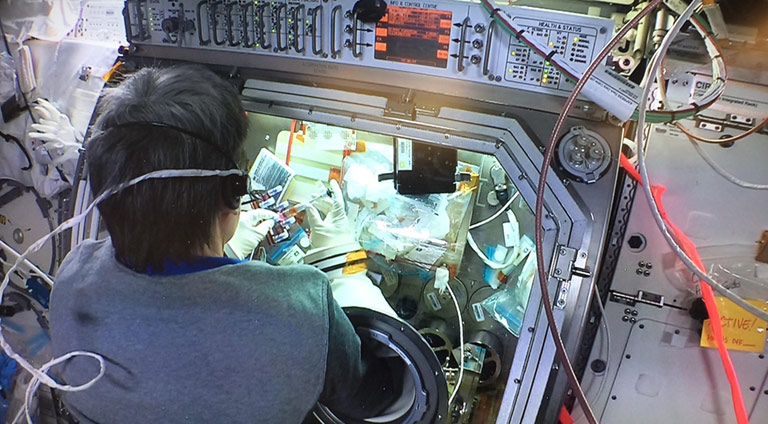
NASA Astronaut Peggy Whitson running Nano3D Biosciences (n3D) experiment at the International Space Station.
Media Credit: Image courtesy of Nano3D Biosciences
Nano3D Biosciences, Inc. will lay the foundation for flight experiments to explore the use of magnetic nanoparticles and magnetic fields to aid in the 3D culture of cells on the ISS. A growing demand exists for cell culture models that better capture the characteristics of living tissue. In microgravity, cell cultures naturally grow in three dimensions, resulting in models that better recapitulate cell growth in living organisms. This investigation seeks to incorporate magnetic cell culture technology into existing flight hardware and optimize platform operation to support continued 3D cell growth experiments on the ISS. As part of this ISS National Lab project, Nano3D Biosciences has also advanced its magnetic 3D bioprinting technology, which is currently commercially available, enabling researchers on the ground to mimic microgravity properties and discover new insights in drug development within biologically relevant cell culture systems on Earth.
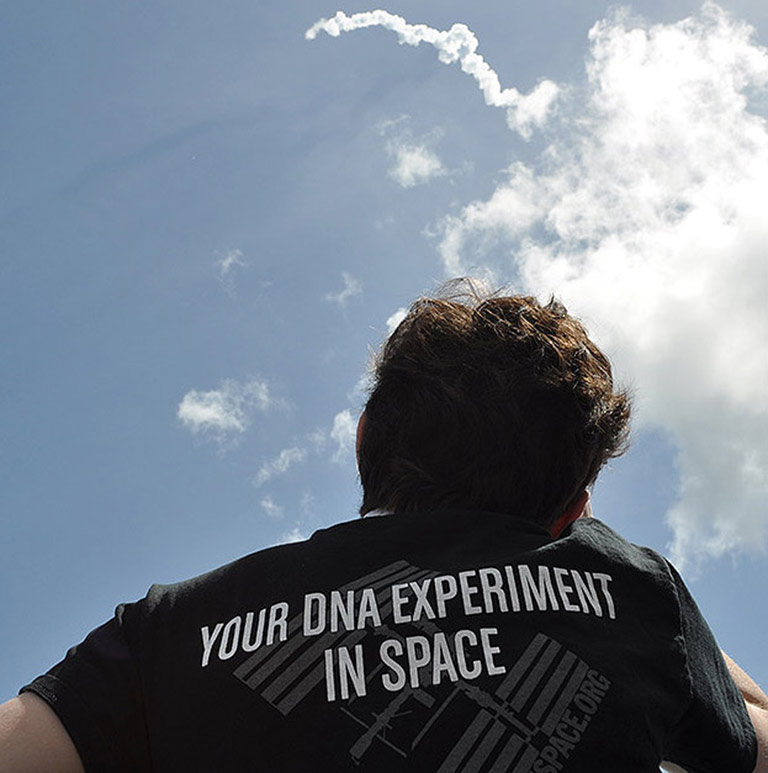
2016 Genes in Space winner, Julian Rubinfien, watching his experiment launch into space.
Media Credit: Image courtesy of Boeing
Genes in Space-2
In this student investigation, high school student Julian Rubinfien seeks to determine whether DNA from telomeres (protective caps on the tips of chromosomes) can be amplified in space to create an assay capable of measuring telomere length during spaceflight. Understanding how the regulation of telomere length changes during spaceflight and the role that it may play in disease and aging is important for future space missions and for use of the spaceflight environment to model terrestrial disease states. This project resulted from the Genes in SpaceTM program, an annual competition in which students compete to send their DNA experiment to the ISS. The Genes in SpaceTM program is supported by a partnership between the Boeing Company, CASIS, miniPCR, Math for America, and New England Biolabs.
Each of these space-based investigations will lead to discovery and innovation that advances an area of research and technology development of critical importance and direct relevance to humans on Earth. Were it not for the unique microgravity environment on the ISS National Lab, these experiments would not be possible.


